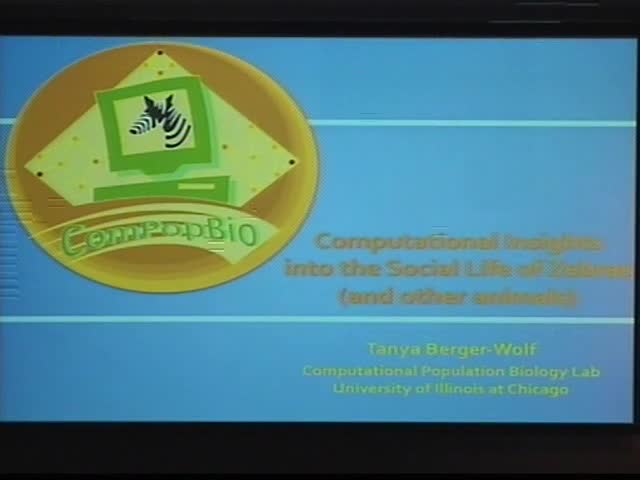Computational Insights into the Social Life of Animals
Presenter
February 27, 2012
Keywords:
- Neural networks
MSC:
- 92B20
Abstract
Computation has fundamentally changed the way we study nature. Recent
breakthroughs in data collection technology, such as GPS and other
mobile sensors, high definition cameras, satellite images, and genotyping, are
giving biologists access to data about wild populations, from genetic to
social interactions, which are orders of magnitude richer than any
previously collected. Such data offer the promise of answering some of
the big questions in population biology: Why do animals form social
groups and how do genetic ties affect this process? Which individuals
are leaders and to what degree do they control the behavior of others?
How do social interactions affect the survival of a species?
Unfortunately, in this domain, our ability to analyze data lags
substantially behind our ability to collect it. In this talk I will show
how computational approaches can be part of every stage of the
scientific process, from data collection (identifying individual zebras
from photographs) to hypothesis formulation (by designing a novel
computational framework for analysis of dynamic social networks).
